Premium Only Content
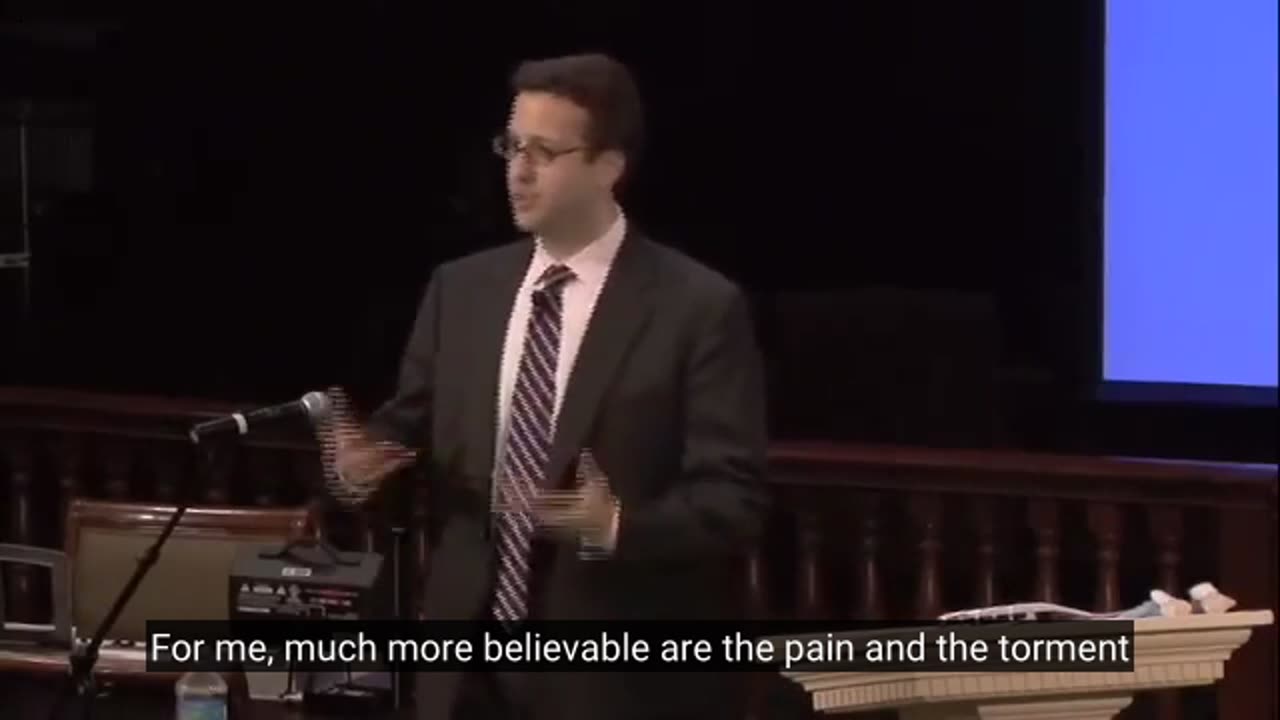
Tolstoy's Ivan Ilyich Died So That We Can Live
https://www.youtube.com/watch?v=al4bfFDnAkA
But something happens with Tolstoy's art. Something happens with Tolstoy's characters over the next 30 years. Because Tolstoy will write The Death of Ivan Ilyich about 30 years later. And if War and Peace is this giant celebration of everything that is in the world, then The Death of Ivan Ilyich is more like a taut string ready to snap. Or as one critic put it, the young Tolstoy saw all of life like a giant glittering ballroom, and the late Tolstoy saw only Ivan's narrow black bag. And there's something to that. See, because Ivan doesn't ask any of the questions that Pierre was asking. He's not searching for any kind of truth. Tolstoy writes, Ivan Ilyich's life was most simple and ordinary, and therefore most terrible. It's not that Tolstoy had anything against ordinariness. Actually, that moment when Pierre eats the potato is quite ordinary. But it's also extraordinary. Ivan never reaches that level. He's a kind of spiritual zombie. He's on autopilot. He does what he's supposed to do. He goes to law school like his father, and he gets a job. And he rises the ranks, and he makes a little bit more money, and he gets a house, and then he picks up a wife along the way. Not exactly because he loved her, not exactly because she was a good social fit, but some combination of those two considerations. And of course, he gets a bigger house, and he's hanging his curtains in his house, or showing the upholsterer how to hang the curtains. And he has a little fall, and he laughs it off. Ha, ha, ha, good thing I'm an athletic man, he says. And then a short time after that, he starts to get this pain in his side. And the pain gets a little worse, and he goes to the doctor. And the doctor does this brilliant analysis. Well, on the one hand, it might be this. On the other hand, it might be that. On the third hand, it might be this. But all Ivan wants to know is, is it serious or not, Doc? And of course, it is serious. He's dying, and he can't grasp that concept. What is wrong with Ivan, by the way? What is his illness? Sarah Barron and I had this conversation over dinner last week. We also talked about tennis and other things, too, so don't worry, it wasn't that depressing of a dinner. But most readers assume what Ivan assumes, that the cause of his death was the fall that he had from the ladder. But you see, Tolstoy never tells us that. Tolstoy doesn't make it that easy on you. He forces us, as readers, to grapple alongside of Ivan with the strangeness of this event that he is confronting. It's an event beyond all explanations, all labels, all causality. Ivan tries in vain to put a label on this experience, which he just can't conceptualize until this moment. Suddenly, the matter presented itself in quite a different aspect. Veriform appendix, kidney, he said to himself. It's not a question of my appendix or my kidney, but of life and death. Yes, life was there, and now it's going, and I can't stop it. There was light, and now there's darkness. I was here, and now I'm going there. Where? A chill came over him, his breathing ceased, and he felt only the throbbing of his heart. Where are we going? Where did we come from? These are unanswerable questions that haunted Tolstoy, and now Ivan's got to confront them himself. We can take our medicine. We can listen to the doctors' diagnoses. We can read the philosophers and the theologians. We can watch Dr. Sanjay Gupta on TV, who I think is our Surgeon General now. But in the end, we have to, each one of us has to confront these big questions on our own. We have to confront that it on our own. To save himself from this condition, Ivan looked for consolations, new screens. And they were found, and for a while seemed to save him, but then they immediately fell to pieces, or rather became transparent, as if it penetrated them, and nothing could veil it. And Tolstoy keeps repeating this word, it. In Russian, it is an interesting word. It also means she. And Tolstoy knew he was playing with this double meaning, because what Ivan is confronted with now is both the most impersonal, universal experience, and also the most intimate relationship of his life. And death is a demanding, irascible partner. And this is one relationship partner he can't manage. It incessantly nags and gnaws at him, kind of like his wife. But unlike his wife, it won't stay at home when he goes out to play bridge. It's not impressed with his job title or his pretty curtains. So Ivan becomes like a drug addict going through withdrawal. As the comfortable numbness of his existence starts to fall away, he is left with the pain not only of his physically decaying flesh, but of a slowly awakening consciousness. He's coming face to face with a new question that he never even knew existed. Not what's next. How do I get from A to B? How do I get a better house, or a promotion, or a better job? Not what's next, but what's first? What's most important in my life? Given that I'm going to die, how should I spend my time on this earth? That's not an abstract question to Tolstoy. That was the most fundamental, practical question that every human being can ask. Tolstoy asked it this way in his confession. Is there any meaning to my life that will not be destroyed by my death? And Tolstoy believed if there is any meaning in our lives, that will not be destroyed by our death, it has to lie in that aspect of our being that is indestructible. And for Tolstoy, that was our spiritual being. And the greatest manifestation of our spiritual being on earth, he believed, was through acts of love and compassion. And this is precisely what Ivan does at the end. When he pities his son, he has asked to have his son sent away. This is perhaps the first truly selfless act of Ivan's life. He goes through, most scholars agree that he goes through some kind of a spiritual conversion, a Christian conversion. But I will tell you, I think that's the least persuasive part of the novella. For me, much more believable are the pain and the torment that Tolstoy describes. These are developed excruciatingly well by the master artist. I'm not convinced that Tolstoy was convinced that Ivan actually found his answer. But what I am convinced of after reading this novella is that Tolstoy was still searching like hell for it. But what I am convinced of after reading this novella
-
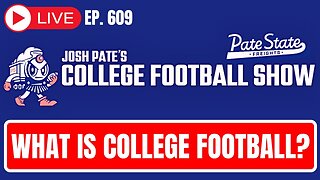 1:19:23
1:19:23
Josh Pate's College Football Show
5 hours ago $1.70 earnedBig Ten Program Rankings | What Is College Football? | Clemson Rage| Stadiums I Haven’t Experienced
42.6K -
 LIVE
LIVE
Vigilant News Network
10 hours agoBombshell Study Reveals Where the COVID Vaccine Deaths Are Hiding | Media Blackout
2,002 watching -
 1:17:59
1:17:59
Sarah Westall
6 hours agoDOGE: Crime & Hysteria bringing the Critics & the Fearful - Plus new CDC/Ukraine Crime w/ Dr Fleming
26.4K3 -
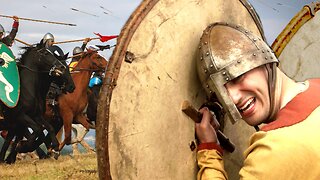 45:39
45:39
Survive History
12 hours ago $3.33 earnedCould You Survive in the Shield Wall at the Battle of Hastings?
26.6K5 -
 1:50:28
1:50:28
TheDozenPodcast
11 hours agoViolence, Abuse, Jail, Reform: Michael Maisey
71.4K2 -
 23:01
23:01
Mrgunsngear
1 day ago $4.23 earnedWolfpack Armory AW15 MK5 AR-15 Review 🇺🇸
64.9K12 -
 25:59
25:59
TampaAerialMedia
1 day ago $2.01 earnedUpdate ANNA MARIA ISLAND 2025
38.3K3 -
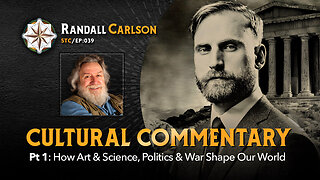 59:31
59:31
Squaring The Circle, A Randall Carlson Podcast
13 hours ago#039: How Politics & War, Art & Science Shape Our World; A Cultural Commentary From Randall Carlson
29.9K2 -
 13:21
13:21
Misha Petrov
13 hours agoThe CRINGIEST Thing I Have Ever Seen…
23.8K49 -
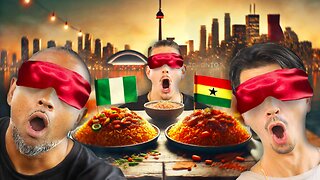 11:45
11:45
BIG NEM
9 hours agoWe Blind Taste Tested the Best Jollof in Toronto 🇳🇬🇬🇭
16K